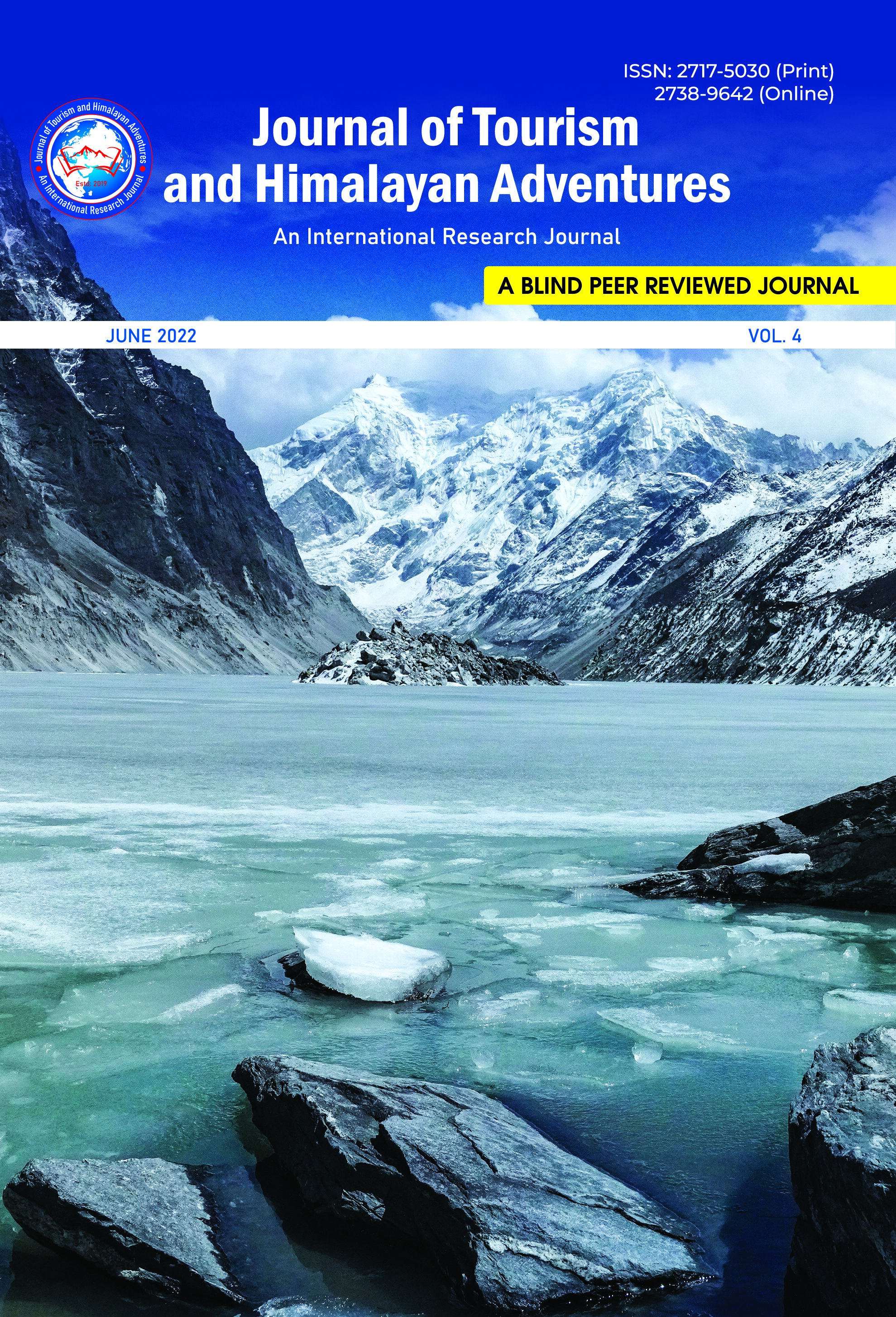Strengthening Prosperity and Peace through Code of Ethics Embedded Responsible Tourism: How Far It Works for Trekking Porters (deprived workforce) in Nepal?
DOI:
https://doi.org/10.3126/jtha.v4i1.46306Keywords:
Prosperity and peace, trekking porters, code of ethics, responsible tourism, trek operatorsAbstract
In addition to pledging economic prosperity, the existing body of knowledge reveals that tourism can bring and accelerate peace. The trek/tour operators can play an important role in this process through the application Code of Ethics (CoE) embedded responsible tourism. However, trekking porters' case in Nepal is not only under researched but also against the above set assumption. In this context, the key focuses of this article is to assess the existing CoE embedded responsible tourism policies and practices and examine the key items related with porters' portering profession.
Methodologically, this research has utilized mixed information (qualitative and quantitative). Within the constructivist research paradigm, forty trek operators which employee trekking porters, were surveyed. Additionally, seven trekking porters (as the center actor of this research) and few leaders of tourism workers' unions were also interviewed. The findings reveal that CoEs emerge as valuable basis for assuring prosperity and peace. It finds improvements on key measuring items like porters' minimum wages, carrying loads, safety gears and clothes, and emergency evacuation in the management of trek operators but with sporadic lapses too. The existing tourism policies and strategies are found highlighting the need of CoEs but silent on the nitty-gritty of such ethics. This paper recommends for recruitments of all porters' through policy led establishment of a national Porter Referral Center (PRC) and all jobs assignments through mandatory job contracts. Finally, it necessitates for both ethics and regulation to go hand in hand for making tourism a true peace builder.




